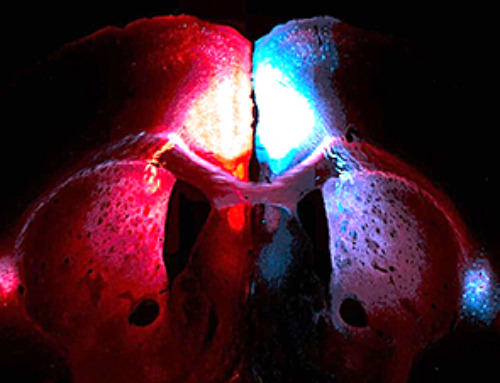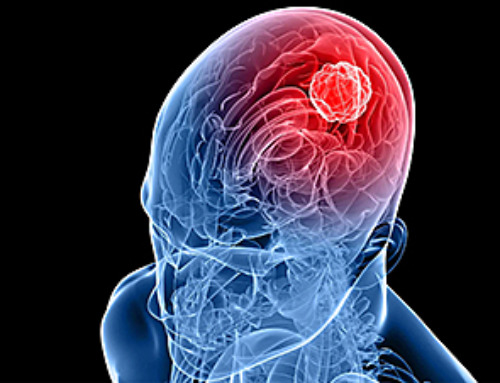CREME, an AI-powered virtual lab, developed at Cold Spring Harbor Laboratory, offers a revolutionary approach to genetic research by simulating CRISPR interference (CRISPRi).
This tool enables scientists to perform virtual genetic experiments and predict their effects on gene activity, which significantly reduces the time and resources required for lab work. CREME's insights into gene regulation could greatly enhance drug discovery and provide access to researchers without physical labs.
Revolutionizing Genetics With AI: Introducing CREME
Imagine you're looking at millions upon millions of mysterious genetic mutations. With CRISPR gene-editing technology, a select few of these mutations might have therapeutic potential. However, proving it would mean many thousands of hours of lab work. Just figuring out which ones are worth exploring further would take a lot of time and money. But what if you could do it in the virtual realm with artificial intelligence?
CREME is a new AI-powered virtual laboratory invented by Cold Spring Harbor Laboratory (CSHL) Assistant Professor Peter Koo and his team. It allows geneticists to run thousands of virtual experiments with the click of a button. Now, scientists can use it to begin identifying and understanding key regions of the genome.
CRISPRi and CREME: Simulating Genetic Changes
The program is modeled after CRISPR interference (CRISPRi), a genetic perturbation technique based on CRISPR. CRISPRi allows biologists to turn down the activity of specific genes in a cell. CREME lets scientists make similar changes in the virtual genome and predicts their effects on gene activity. In other words, it's almost like an AI version of CRISPRi.
"In reality, CRISPRi is incredibly challenging to perform in the laboratory. And you're limited by the number of perturbations and the scale. But since we're doing all our perturbations [virtually], we can push the boundaries. And the scale of experiments that we performed is unprecedented—hundreds of thousands of perturbation experiments," explains Koo.
Delving Into Genome Analysis With AI
Koo and his team tested CREME on another AI-powered genome analysis tool called Enformer. They wanted to know how Enformer's algorithm makes predictions about the genome. Questions like that are central to Koo's work, he says.
"We have these big, powerful models. They're quite compelling at taking DNA sequences and predicting gene expression. But we don't really have any good ways of trying to understand what these models are learning. Presumably, they're making accurate predictions because they've learned a lot of the rules about gene regulation, but we don't actually know what their predictions are based off of."
Implications for Drug Discovery and Accessibility
With CREME, Koo's team uncovered a series of genetic rules that Enformer learned while analyzing the genome. That insight may one day prove invaluable for drug discovery. "Understanding the rules of gene regulation gives you more options for tuning gene expression levels in precise and predictable ways," says Koo.
With further fine-tuning, CREME may soon set geneticists on the path to discovering new therapeutic targets. Perhaps most impactfully, it may even give scientists who do not have access to a real laboratory the power to make these breakthroughs.
Reference: 16 September 2024, Nature Genetics.
DOI: 10.1038/s41588-024-01923-3
News
Rejuvenating neurons restores learning and memory in mice
EPFL scientists report that briefly switching on three “reprogramming” genes in a small set of memory-trace neurons restored memory in aged mice and in mouse models of Alzheimer’s disease to level of healthy young [...]
New book from Nanoappsmedical Inc. – Global Health Care Equivalency
A new book by Frank Boehm, NanoappsMedical Inc. Founder. This groundbreaking volume explores the vision of a Global Health Care Equivalency (GHCE) system powered by artificial intelligence and quantum computing technologies, operating on secure [...]
New Molecule Blocks Deadliest Brain Cancer at Its Genetic Root
Researchers have identified a molecule that disrupts a critical gene in glioblastoma. Scientists at the UVA Comprehensive Cancer Center say they have found a small molecule that can shut down a gene tied to glioblastoma, a [...]
Scientists Finally Solve a 30-Year-Old Cancer Mystery Hidden in Rye Pollen
Nearly 30 years after rye pollen molecules were shown to slow tumor growth in animals, scientists have finally determined their exact three-dimensional structures. Nearly 30 years ago, researchers noticed something surprising in rye pollen: [...]
NanoMedical Brain/Cloud Interface – Explorations and Implications. A new book from Frank Boehm
New book from Frank Boehm, NanoappsMedical Inc Founder: This book explores the future hypothetical possibility that the cerebral cortex of the human brain might be seamlessly, safely, and securely connected with the Cloud via [...]
How lipid nanoparticles carrying vaccines release their cargo
A study from FAU has shown that lipid nanoparticles restructure their membrane significantly after being absorbed into a cell and ending up in an acidic environment. Vaccines and other medicines are often packed in [...]
New book from NanoappsMedical Inc – Molecular Manufacturing: The Future of Nanomedicine
This book explores the revolutionary potential of atomically precise manufacturing technologies to transform global healthcare, as well as practically every other sector across society. This forward-thinking volume examines how envisaged Factory@Home systems might enable the cost-effective [...]
A Virus Designed in the Lab Could Help Defeat Antibiotic Resistance
Scientists can now design bacteria-killing viruses from DNA, opening a faster path to fighting superbugs. Bacteriophages have been used as treatments for bacterial infections for more than a century. Interest in these viruses is rising [...]
Sleep Deprivation Triggers a Strange Brain Cleanup
When you don’t sleep enough, your brain may clean itself at the exact moment you need it to think. Most people recognize the sensation. After a night of inadequate sleep, staying focused becomes harder [...]
Lab-grown corticospinal neurons offer new models for ALS and spinal injuries
Researchers have developed a way to grow a highly specialized subset of brain nerve cells that are involved in motor neuron disease and damaged in spinal injuries. Their study, published today in eLife as the final [...]
Urgent warning over deadly ‘brain swelling’ virus amid fears it could spread globally
Airports across Asia have been put on high alert after India confirmed two cases of the deadly Nipah virus in the state of West Bengal over the past month. Thailand, Nepal and Vietnam are among the [...]
This Vaccine Stops Bird Flu Before It Reaches the Lungs
A new nasal spray vaccine could stop bird flu at the door — blocking infection, reducing spread, and helping head off the next pandemic. Since first appearing in the United States in 2014, H5N1 [...]
These two viruses may become the next public health threats, scientists say
Two emerging pathogens with animal origins—influenza D virus and canine coronavirus—have so far been quietly flying under the radar, but researchers warn conditions are ripe for the viruses to spread more widely among humans. [...]
COVID-19 viral fragments shown to target and kill specific immune cells
COVID-19 viral fragments shown to target and kill specific immune cells in UCLA-led study Clues about extreme cases and omicron’s effects come from a cross-disciplinary international research team New research shows that after the [...]
Smaller Than a Grain of Salt: Engineers Create the World’s Tiniest Wireless Brain Implant
A salt-grain-sized neural implant can record and transmit brain activity wirelessly for extended periods. Researchers at Cornell University, working with collaborators, have created an extremely small neural implant that can sit on a grain of [...]
Scientists Develop a New Way To See Inside the Human Body Using 3D Color Imaging
A newly developed imaging method blends ultrasound and photoacoustics to capture both tissue structure and blood-vessel function in 3D. By blending two powerful imaging methods, researchers from Caltech and USC have developed a new way to [...]





















